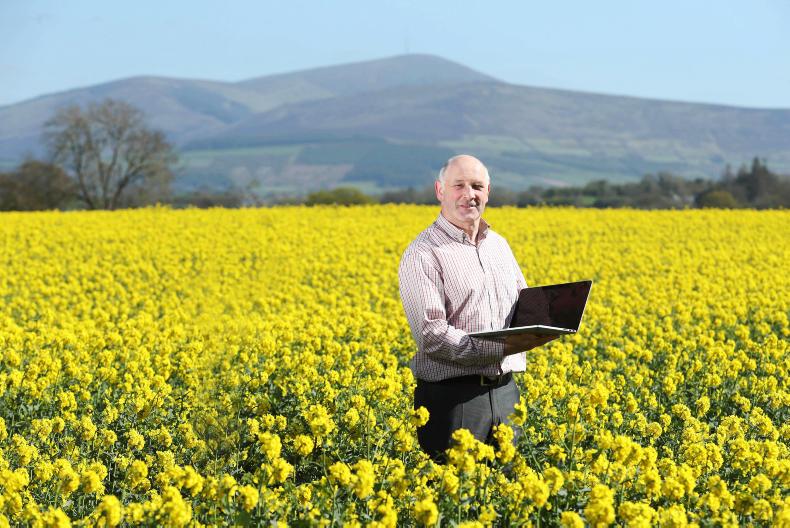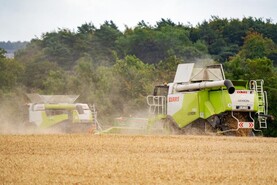Smart Farming, the resource efficiency programme, run by the Irish Farmers’ Association in partnership with the Environmental Protection Agency, will host an online seminar on Tuesday, April 28, at www.smartfarming.ie.
The seminar is going online this year, as we all step up to address the COVID-19 challenge. Despite the disruption to farming life, we are keen to build on the success of the event in recent years, albeit in a different format.
Short 20 minute presentations on fertiliser planning from Grassland Agro, animal breeding strategies and clover management from Teagasc, and ways to reduce methane from UCD will all be available to view at smartfarming.ie. Any questions after watching the presentations can be emailed on the day to smartfarming@ifa.ie.
The Minister for Climate Action and the Environment Richard Bruton and IFA president Tim Cullinan will also take part in this year’s online seminar.
Paul O’Brien, Smart Farming’s proggramme leader said: “The challenges presented to us right now are significant, as we all play our part in flattening the COVID-19 curve. However, we must ensure that these challenges do not prevent us from accessing the latest sustainability research and technologies. I encourage as many as possible to go to smartfarming.ie on April 28, watch the presentations, learn something new and ask challenging questions at smartfarming@ifa.ie.
Government must introduce low-interest loan scheme for farmers
IFA president Tim Cullinan has called on the Government to introduce a specific COVID-19 Market Disruption Support low-interest loan scheme for the farming sector as a matter of urgency.
Primary agriculture, horticulture and aquaculture, with the exception of the limited increased funding (plus €7m) available from Microfinance Ireland, are excluded from the Government-backed COVID-19 support schemes.
“The COVID-19 pandemic presents an unprecedented threat. The scale and rapidity of market closures and disturbances are unprecedented. It has led to widescale disruption for farmers and the associated processing industries. To make matters worse, the cashflow situation in many farming households has been further compounded by the loss of off-farm income.”
Covering expenses
IFA farm business chairman, Rose Mary McDonagh said: “While the reopening of the SBCI’s future loan scheme for farm development purposes is welcome, it doesn’t address the accelerated and growing demand for increased working capital arising on many farms as a result of COVID-19”.
“We want to see a COVID-19 Market Disruption Support low-interest loan scheme to support farmers. They need access to sufficient funding to cover their operating expenses during this unprecedented crisis.
“Relying on merchant/co-operative credit is not an option, as many of these businesses are struggling to collect monies owed from farmer and non-farmer debtors.
“Regrettably, all of the COVID-19 financial aid schemes exclude primary agriculture and aquaculture. Given the depth and breadth of the crisis, it’s critically important that financial aid is delivered down to the last mile. Low-cost funds must be channelled directly to farmers across all sectors to protect upstream and downstream employment, as well as productive capacity.”






 This is a subscriber-only article
This is a subscriber-only article









SHARING OPTIONS: